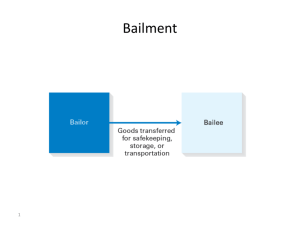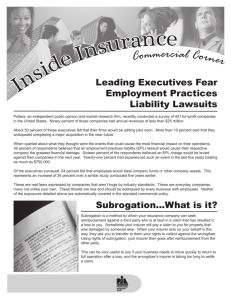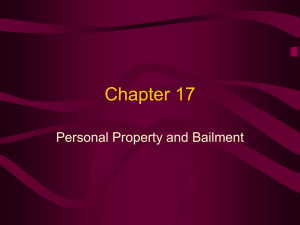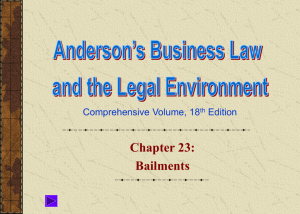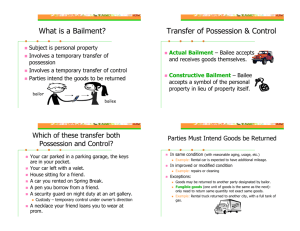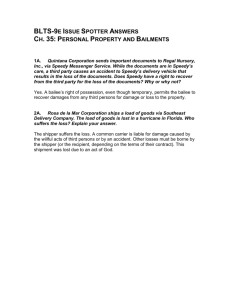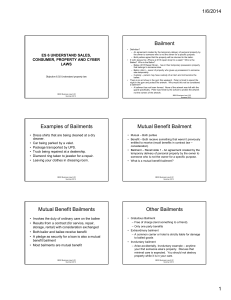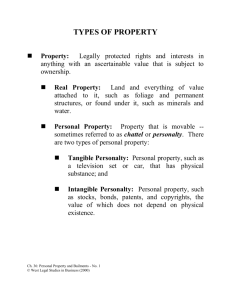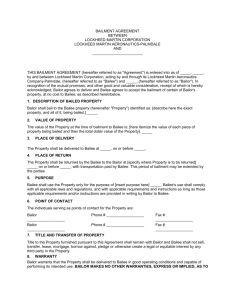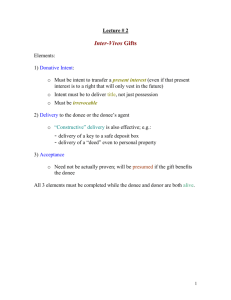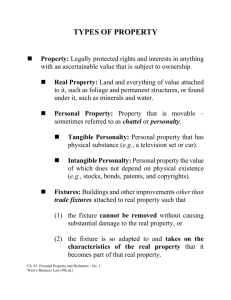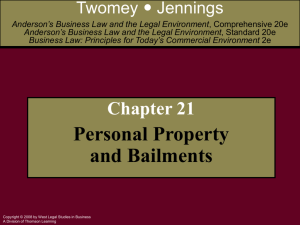Bailments (Only read pages1061 to 1066. DO NOT Read
advertisement
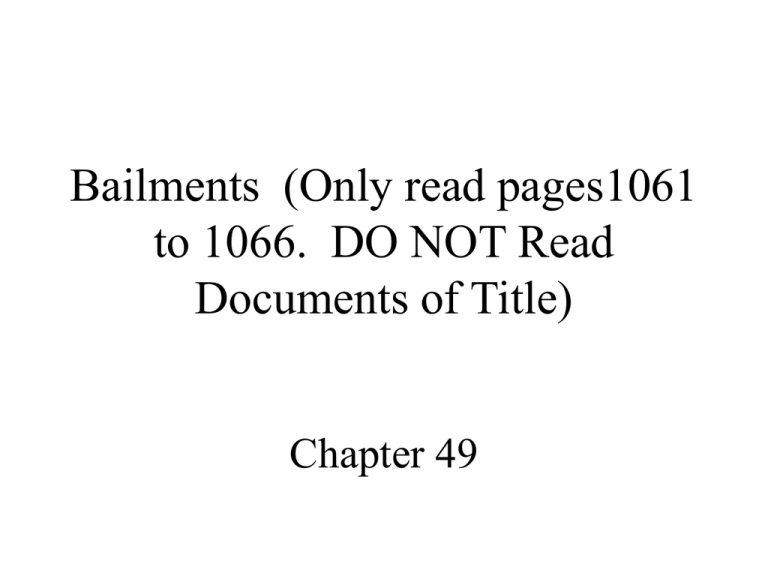
Bailments (Only read pages1061 to 1066. DO NOT Read Documents of Title) Chapter 49 Bailments • A bailment is the legal relationship that results whenever one person (the bailor) transfers possession (but not title) of his/her personal property to another person (bailee) to return it or otherwise dispose of it, according to his/her instructions. – only exists with personal property • To form a bailment, there must be an agreeement. Owner must make DELIVERY of property. Bailee must have clear intent to CONTROL the property, and bailee must ACCEPT it. – Delivery can be constructive, symbolic rather than actual (i.e., keys to car) Bailments vs. Sales & Gifts • Bailments are distinguished from a sale or gift in that the bailee does not receive title, & at the end of the bailment term, the bailee must return or account for the property. – Bailee has absolute duty to restore possession of the property to the bailor - can’t misdeliver or bailee will be liable for conversion. Bailee is presumed negligent if property is damaged. – Generally, the bailee is required to return the specific property unless property is fungible (i.e.,grain), the bailee need only return goods of the same quality and quantity. Constructive Bailments • Involuntary bailments. Bailee comes into possession without the affirmative consent of its true owner. • Taking or having possession of lost or mislaid property. • Involuntary bailee owes the owner a slight duty of care and is only liable for gross negligence Classification of Ordinary Bailments; Bailee’s Duty of Care • Gratuitous Bailments - for sole benefit of bailor. Bailee has a duty of slight care; only liable for gross negligence. • Bailment for the Sole Benefit of Bailee Bailee owes a duty of great care, the utmost care. Liable for slight negligence. • Mutual Benefit Bailments - Bailee owes a duty of ordinary care. Liable for ordinary negligence (Includes commercial bailments) Extraordinary (Special) Bailments • Common carriers • Innkeepers • Public warehousers Limitation of Liability • Limitation of liability for negligence or breach of contract. • Limitation must be contained in a separate agreement, or within the bailment contract. • Liability for wrongful misconduct may not be limited. • The ability to modify may be restricted by statute. • Limitation must be brought to the attention of bailor, and he must agree, or it’s unenforceable...against public policy. Termination • Expiration of specified term • Purpose of bailment is accomplished • Mutual agreement between bailor and bailee. • Serious misuse of bailed property by bailee. • Decision by either party if bailment is at will
